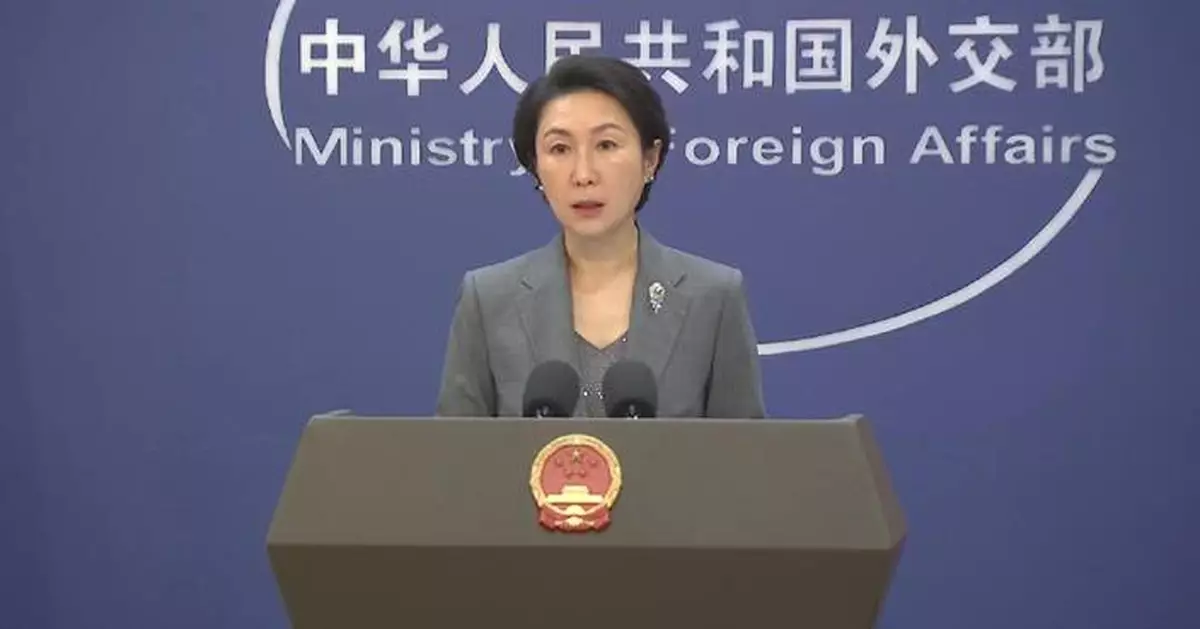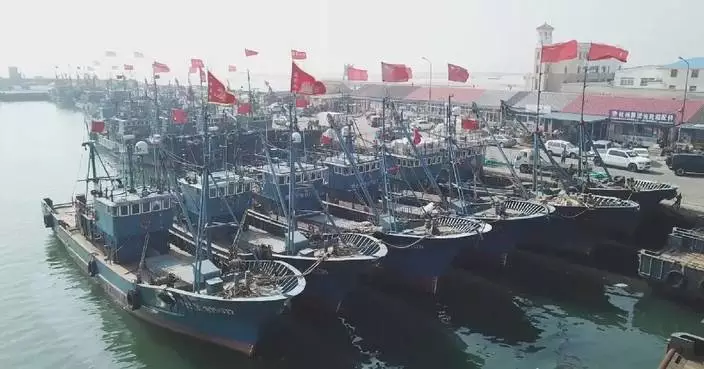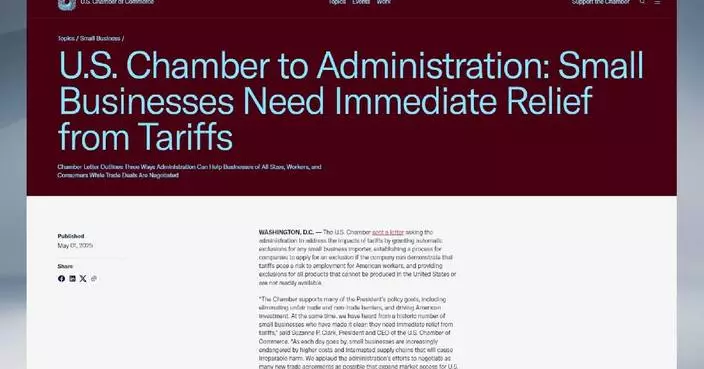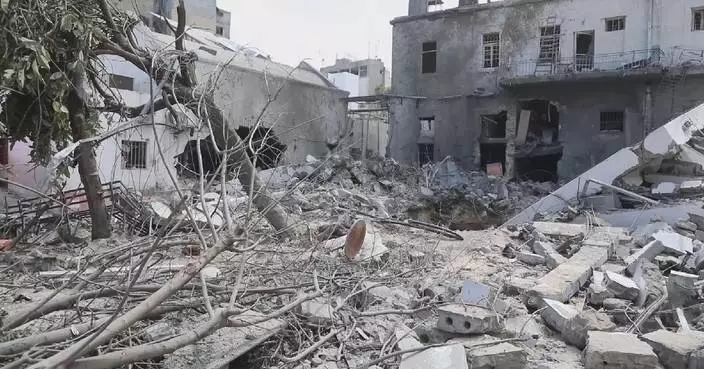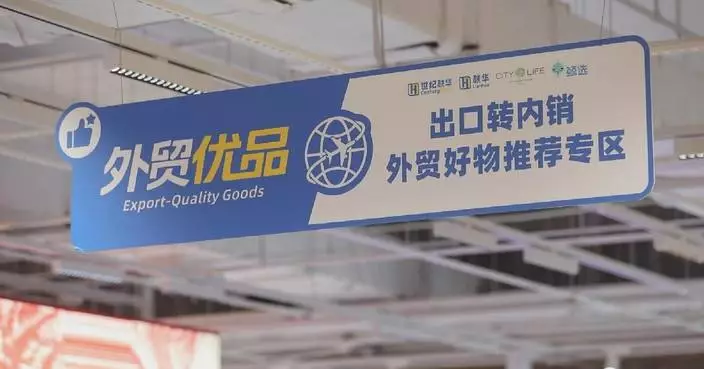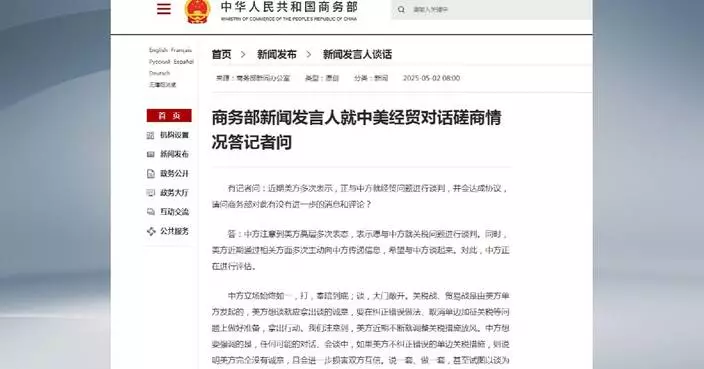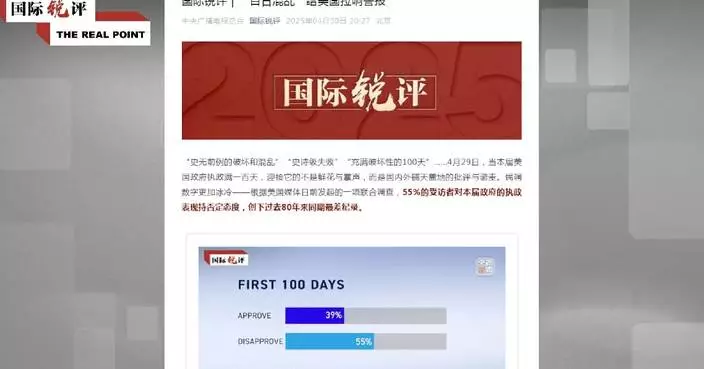The United States should immediately stop imposing blockade and sanctions against Cuba under any pretext, remove Cuba from the 'state sponsors of terrorism' list and do more things that are conducive to improving U.S.-Cuba relations, said Mao Ning, spokeswoman for the Ministry of Foreign Affairs, said at a press briefing in Beijing on Wednesday.
Recently, the U.S. announced the expansion of its visa restrictions on Cuba, emphasizing that Cuba's overseas medical services are suspected of "forced labor" and will impose visa restrictions on current or former Cuban government officials, third-country officials and their immediate family members who are responsible for related affairs.
The foreign ministers of the Caribbean Community member states expressed their concerns about the relevant U.S. policies when meeting the U.S. State Department's special envoy for Latin American affairs in Washington, and several Caribbean leaders have also criticized the move.
"Cuba's overseas medical services are welcomed by the governments and people of Caribbean countries. The so-called 'forced labor' has become the 'perfect excuse' and hegemonic tool for the U.S. to suppress dissidents. The relevant measures of the U.S. are the continuation and strengthening of its blockade and sanctions against Cuba for more than 60 years. China opposes coercive diplomacy and urges the U.S. to immediately stop imposing blockade and sanctions against Cuba under any pretext, remove Cuba from the 'state sponsors of terrorism' list , do more things that are conducive to improving U.S.-Cuba relations, and do more practical things that truly help Caribbean countries," said Mao.
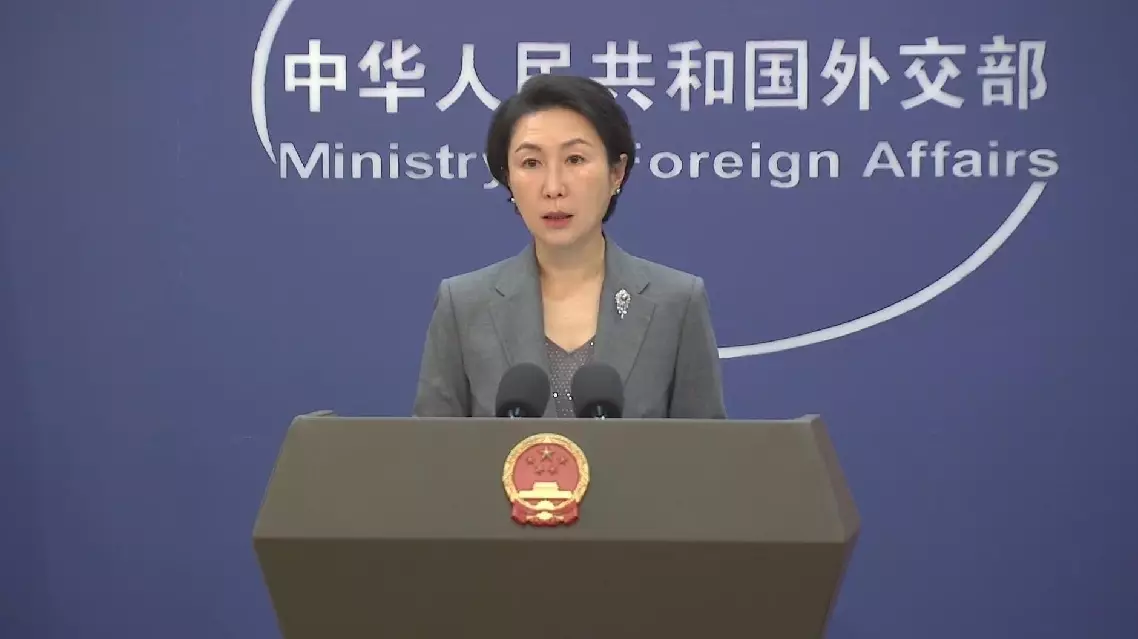
China urges US to immediately stop imposing blockade, sanctions against Cuba
Food prices surged after Israel reimposed a full blockade on the Gaza Strip on March 2, plunging the region into a dire food crisis.
Now, all humanitarian aid has been barred from entering the enclave.
The World Food Program has reported that food prices in Gaza have surged by 1,400 percent this year.
Even the most basic vegetables have become unaffordable for ordinary families, as residents are starving on a scale beyond imagination.
Amid the rubble in western Gaza City, a makeshift market has formed.
Yet vegetables, once a common sight, are now sold by only a few vendors.
"One potato costs five shekels (about 1.38 U.S. dollars), sometimes even more. The same goes for cucumbers and tomatoes. Prices are skyrocketing as the border crossings are closed and supplies can't get in," said Mohammad Yazji, a vegetable vendor at the market.
Yazji sets up his stall early each day, but receives few customers.
For him, these expensive vegetables aren't food. They're the only hope of making enough money to feed his family.
According to a report by the UN Food and Agriculture Organization, Gaza's agricultural system has almost collapsed, with nearly 70 percent of farmland destroyed, over 70 percent of fruit trees burned, 95 percent of cattle and at least half of the sheep dead, and farming infrastructure severely damaged.
Local food production has plummeted, leaving residents heavily dependent on imported food - an option no longer viable under the continuing blockade.
As a result, the local pricing system has completely broken down.
"Prices keep rising. There's no flour, no food to live on. The price of flour has become exorbitant. A bag of flour (30 kilograms) costs 500 to 600 U.S. dollars now. People have no cash. They can't afford any food. The only way out is to end the war on Gaza. It has inflicted too much pain on too many people," said Yazji.
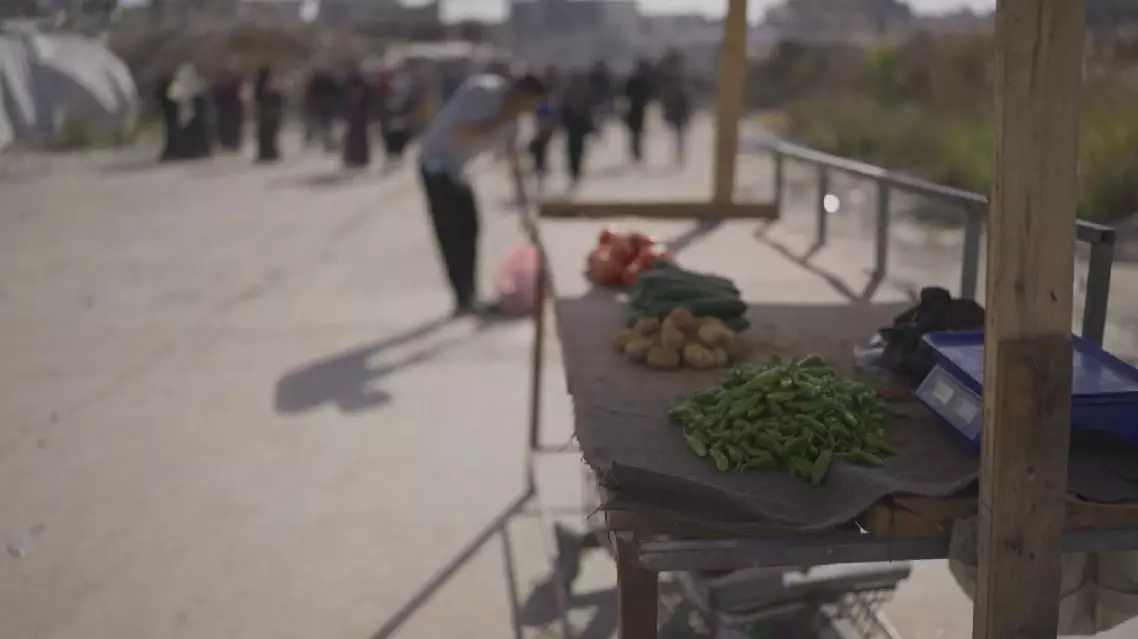
Food prices soar after Israel halts aid deliveries into Gaza



